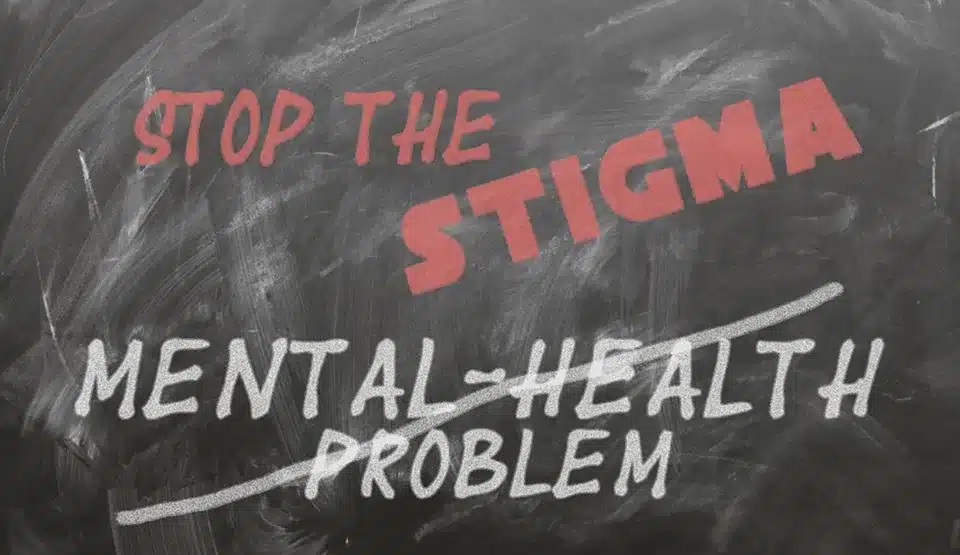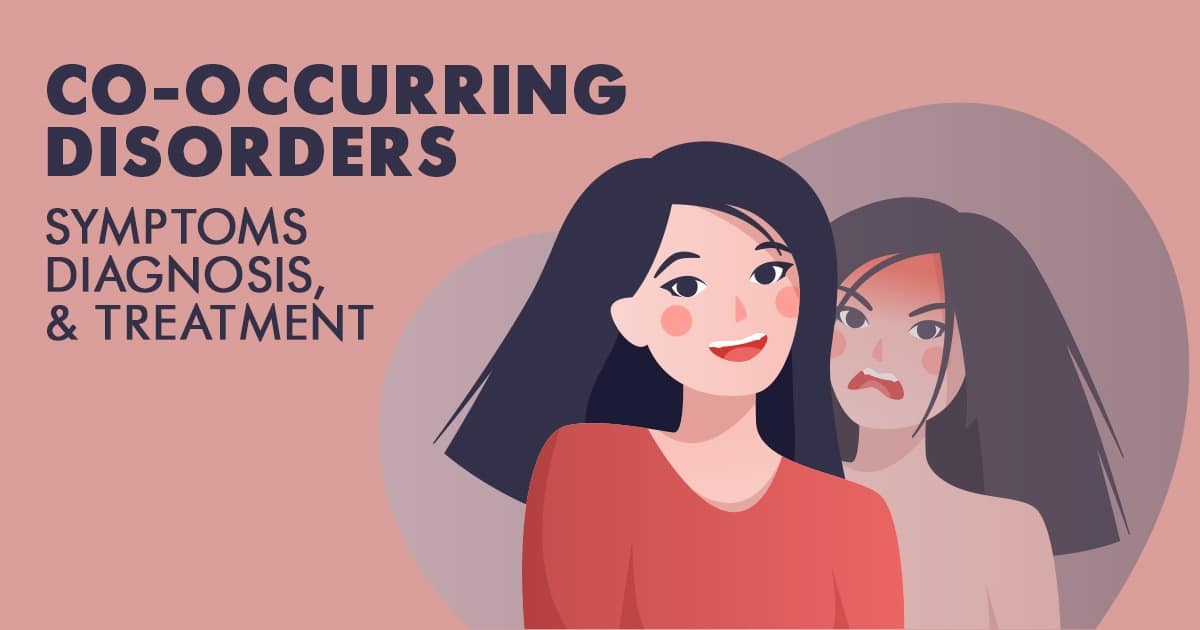Co-occurring disorders are a reference to having two or more mental health issues or physical health conditions simultaneously. The term is most commonly about having a substance use disorder and another mental health disorder such as bipolar, anxiety, or depression. Having another mental health ailment along with addiction is relatively standard. There are many links between addiction and other psychiatric conditions.
If you receive treatment for a substance abuse issue, but it doesn’t address your other psychiatric conditions, you’re more likely to relapse. When you experience the symptoms of multiple mental health disorders, your treatment plan should address all of them for the best outcomes in your recovery journey.
What is a Co-Occurring Disorder?
A co-occurring disorder is a condition that coincides with one another. If you have a diagnosis of multiple mental health disorders, you may know which one you experienced symptoms of first, but sometimes, you don’t.
According to the National Institute on Drug Abuse, around 50% of people who experience mental illnesses during their life will also develop substance abuse issues and vice versa. More than 60% of adolescents in substance use treatment programs meet the criteria for other mental illnesses. So, why is there such a strong link between addiction issues and other mental health issues?
There are a few primary reasons researchers think are relevant.
- The risk factors between substance abuse and mental health conditions tend to overlap with one another. For example, exposure to trauma is a shared risk factor, as are genetics and environmental factors.
- When you have a mental illness, dealing with the symptoms can be overwhelming. Substance abuse may become a way to cope with your symptoms or self-medicate. Unfortunately, you aren’t medicating anything. Substances including drugs and alcohol can worsen other mental health diseases.
- When you use drugs, they affect the same areas of your brain as mental health disorders.
Common Co-Occurring Disorders
What are some co-occurring psychiatric and substance disorders? The ones we see most often include:
Anxiety
There are many subtypes of anxiety that can occur along with an addiction to drugs or alcohol. Generalized anxiety disorder is among the most frequently seen. If you deal with symptoms of anxiety, or panic, you could self-medicate using drugs or alcohol. Tens of millions of Americans have anxiety issues, and they’re more common in women than men.
Depression
Around one-third of people in the U.S. with drug addictions also have depression. Depression is around three times more likely to develop in people with addictions than in the general population. Symptoms of depression can include sadness, hopelessness, and feelings of guilt and worthlessness. If you use drugs or alcohol to deal with these symptoms, you might temporarily feel better, but then, as is the case with other co-occurring mental health symptoms, you’re likely going to end up feeling worse.
Post-Traumatic Stress Disorder (PTSD)
PTSD is a type of anxiety condition that comes from exposure to trauma. Trauma exposure can include violence, physical combat, or sexual abuse. Around two-thirds of people with PTSD are also thought to have a substance addiction. Based on research published in the Journal of Clinical Psychology, people with PTSD are anywhere from two to four times more likely to develop a SUD.
Bipolar Disorder
This psychiatric condition leads to periods of depression alternating with periods of mania. As many as half of people with mood disturbances like bipolar will develop substance abuse in their life.
Other mental health disorders that we see associated with addiction include personality-related issues like borderline personality disorder, eating, attention deficit hyperactivity disorder (ADHD), and schizophrenia.

Co-Occurring Disorders Treatment
Dual diagnosis treatment is going to be more effective and beneficial to treat a SUD and the psychotic disorder that’s co-occurring together instead of trying to do so separately. If someone has a mental health disorder and an addiction, they need to work with a team of health care providers who have experience in dual diagnosis. This will allow them to make not only the correct diagnosis but also target their treatment.
When you’re dealing with a drug use disorder or alcohol abuse and a mental health condition, your treatment needs to be highly specific and individualized to your needs. Your treatment should consider your symptoms, age, other underlying health issues you may have, and your history of substance misuse.
Types of treatment that may be used on their own, or more often in combination with one another include
- Behavioral therapy: Also called talk therapy or psychotherapy, behavioral treatment is helpful in the treatment of mental sicknesses and substance use. Talk therapy, like cognitive-behavioral therapy, is almost always part of an addiction treatment program. Dialectical behavioral therapy or DBT is another type of behavior therapy that uses acceptance and mindfulness to reduce harmful behaviors and control strong emotions. For adolescents, therapy approaches might include multidimensional family therapy or multisystemic therapy.
- Medications: There are several medication-approved treatments for opioid addiction and alcohol dependence. These medicines are approved to help with withdrawal symptoms and dependence in particular. When you take medication for drug withdrawal or alcohol dependence, you aren’t distracted as much by cravings and discomfort to receive treatment. There are also many treatments like antidepressants.
- Complementary therapies: As well as psychotherapy and medications, dual diagnosis treatment for addiction might include a wide variety of complementary therapies. Complementary therapies could mean animal-assisted therapy, art or music therapy, yoga, or mindfulness meditation.
Dual diagnosis treatment or integrated services have benefits including:
- Improved likelihood of long-term recovery
- Abstinence from drugs or alcohol
- Improvement in psychiatric symptoms
- Better overall functioning in daily life
- Better quality of life
- Reduced risk of hospitalization
- More housing and job stability
- Fewer interactions with law enforcement
- A lower likelihood of engaging in risky behavior
The ultimate objectives of integrated treatment programs are to offer coordinated, holistic care. Integrated mental health care and substance use treatment view you like what you are: an individual; you’re more than your mental illness and also your substance use. All the different and often complex facets of who you are are part of your treatment plan.
With effective treatment for co-occurring mental disorders, you are more likely to enjoy a full recovery and a thriving life.
However, without appropriate integrated treatment, people with co-occurring disorders are more likely to face hospitalization than those who just have substance use issues or common mental health issues.
Mental Health and Addiction Treatment
One of the best features of integrated treatment for mental health and addiction is that it’s a one-stop shop. Your team of providers collaborates on one treatment plan at one treatment facility for you. Everything works together in a system that’s designed to provide you with the care that’s best for you. At such an integrated facility, your team of providers can discuss your treatment plan together and with you directly under confidentiality as it best suits you, not through emails that get lost between Whole Foods coupons and ads for diet pills. Consequently, much less time is wasted trying to coordinate care across fundamentally different medical bureaucracies.
What is Borderline Personality Disorder (BPD)?
Borderline personality disorder (BPD) is a mental illness that exhibits intense emotions, unstable self-image, impulsiveness, and often, unstable relationships. It is one of many psychiatric disorders. It usually arises as a means to cope with intense emotional pain, trauma, and/or fear. Furthermore, it often occurs with other mental illnesses including anxiety, depression, and eating disorders.
About 1-3% of American adults have BPD, so while it’s not common, it’s not exactly rare, either. Though BPD is treatable, it can be difficult to manage because those with BDP can have difficulty perceiving their thoughts or behaviors as abnormal.
Furthermore, because of associated emotional pain, unstable self-image, and fear of abandonment, statistics show that many people with a borderline personality disorder often partake in alcohol and drugs to try and fill the emotional “void”.
Symptoms of Borderline Personality Disorder and Addiction
About 78% of people with BDP have also abused drugs at some point, meaning that BPD and substance abuse are commonly co-occurring. To help show you how linked they are, here is a list of symptoms. Some of these are for substance abuse, others for borderline personality disorder. Can you guess which symptoms belong to which?
- Impulsive behavior
- Self-destructive behavior
- Violent mood swings
- Manipulative actions
- Unstable relationships, jobs, or financial situation
- Lack of concern for their own safety and well-being
- Pursuing dangerous behavior despite obvious risks
Difficult, right?
It’s not just difficult for you to figure out which symptoms are for BPD and which are for substance abuse, it’s difficult for medical professionals to guarantee effective treatment. That’s because every symptom listed is a symptom of both borderline personality disorder and addiction.
Even the symptoms that are tied to only BPD seem very similar to drug abuse.
- Paranoia
- Unstable sense of self
- Fear of being alone (and doing everything possible to avoid it)
- Eating disorders
- Codependency or pattern of toxic relationships
- Avoiding full self-responsibility
Getting Better
Treatment centers that Integrate substance use treatment can not only help you in the short-term with relapse prevention but also connect you to resources in your community when you return home.
Please reach out to the team at Opus Health at 855-953-1345 to learn more about how our addiction specialists effectively and compassionately treat mental health and co-occurring substance use disorders.




